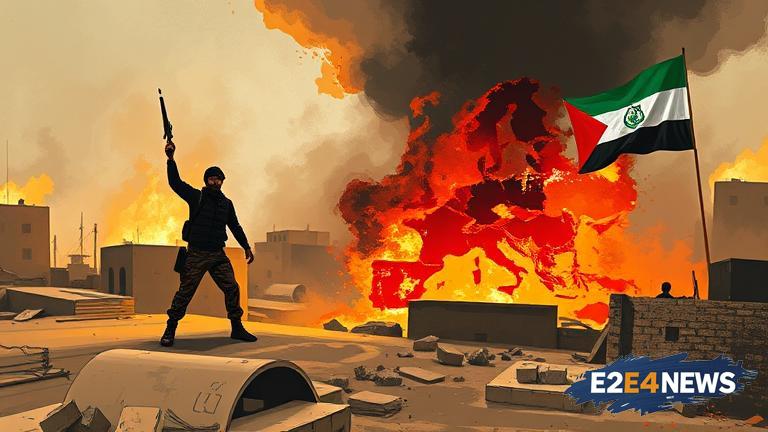The ongoing conflict in Gaza has sparked intense debate and discussion worldwide, with many struggling to understand the complexities of the situation. Coleman Hughes, in a recent article, delves into the heart of the matter, exposing the strategic maneuvers of Hamas and their implications on the global stage. According to Hughes, Hamas’ primary strategy is to maximize suffering on its own side, thereby garnering international sympathy and condemnation of Israel. This approach is rooted in the understanding that the global community’s moral compass is often swayed by images of suffering and destruction, rather than the intricacies of political and historical context. By deliberately placing its own civilians in harm’s way, Hamas aims to create a narrative that portrays Israel as the aggressor, disregarding the fact that Israel’s actions are often in response to Hamas’ provocations. This tactic not only undermines Israel’s right to self-defense but also obscures the true nature of Hamas’ intentions and actions. The international community, in its haste to condemn Israel, often overlooks the role of Hamas in perpetuating the conflict, thereby perpetuating a cycle of violence and suffering. Furthermore, the moral confusion that arises from this situation is exploited by Hamas to its advantage, as the world’s attention is diverted from its own culpability. The strategy is multifaceted, involving not just the manipulation of public opinion but also the exploitation of legal and diplomatic channels to isolate and condemn Israel. This has significant implications for global politics, as it sets a dangerous precedent where terrorist organizations can manipulate international opinion to their advantage. The role of media in this conflict is also critical, as biased reporting can exacerbate the situation by presenting a skewed narrative that supports Hamas’ strategy. Moreover, the failure of the international community to hold Hamas accountable for its actions emboldens the organization to continue its aggressive stance, knowing that the blame will ultimately fall on Israel. The consequences of this moral confusion are far-reaching, affecting not just the Middle East but global security and stability. It underscores the need for a more nuanced understanding of the conflict, one that recognizes the complexities and does not succumb to simplistic narratives. In essence, the Gaza conflict is a stark reminder of the challenges in navigating moral and political dilemmas in the face of asymmetric warfare and propaganda. The situation demands a thoughtful and informed approach, one that considers the historical, political, and humanitarian aspects of the conflict. Only through such an approach can the international community hope to address the root causes of the conflict and work towards a resolution that respects the rights and dignity of all parties involved. The ongoing debate surrounding the Gaza conflict highlights the importance of critical thinking and the need to question prevailing narratives. It also underscores the role of education and awareness in fostering a deeper understanding of global conflicts and their complexities. Ultimately, resolving the Gaza conflict will require a concerted effort from the international community, one that is grounded in a commitment to truth, justice, and peace. This involves not just political and diplomatic efforts but also a societal shift towards a more informed and empathetic engagement with global issues. By shedding light on Hamas’ strategy and the moral confusion it perpetuates, Coleman Hughes contributes to a necessary conversation about the nature of the conflict and the path towards its resolution. The article serves as a call to action, urging readers to look beyond the surface level of the conflict and to engage with its complexities. In doing so, it hopes to inspire a more nuanced discussion and a more informed public opinion, one that is essential for navigating the challenges of the Gaza conflict and similar global crises. The implications of the Gaza conflict extend beyond the region, touching on issues of terrorism, international law, and human rights. It serves as a case study for the challenges of modern warfare and the role of non-state actors in global conflicts. Understanding the dynamics of the conflict is crucial for developing effective strategies to combat terrorism and promote peace and stability. The conflict also highlights the importance of a free and unbiased press, as well as the role of social media in shaping public opinion and influencing political discourse. In conclusion, the Gaza conflict is a complex and multifaceted issue, requiring a thoughtful and informed approach. By examining the strategies of Hamas and the moral confusion they perpetuate, we can work towards a deeper understanding of the conflict and its implications for global peace and security.





